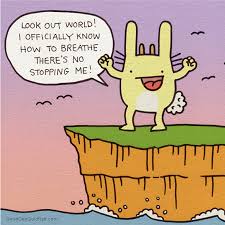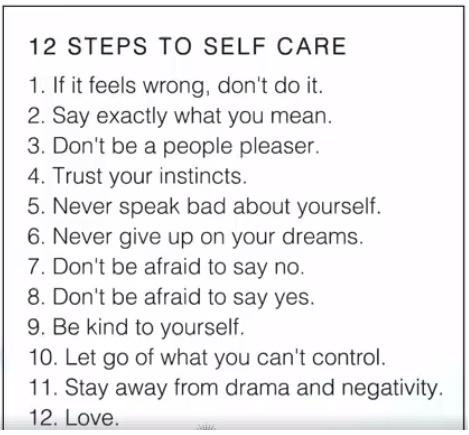By Tim Altman
23/09/2020
Breathing Dynamics, Chronic Illness, Evolutionary Medicine, Latest News, Mickel Therapy, Naturopathy, Nutrition and Weight Loss, Performance
#corona virus, Breathing, Breathing retraining, chronic fatigue syndrome, chronic illness, CoVid-19, Detox, Diaphragm Breathing, Fasting, Fatigue, immune system, intermittent fasting, mental health, naturopath melbourne, Naturopath Torquay, Online consultation, Performance, Tim Altman
We Were Overdue A Visit From a Pandemic!
“Whether currently-circulating avian, swine and other zoonotic (transferred from animal to human) influenza viruses will result in a future pandemic is unknown. However, the diversity of zoonotic influenza viruses that have caused human infections is alarming and necessitates strengthened surveillance in both animal and human populations” World Health Organisation on influenza
The above quote, cited by Vybarr Cregan-Reid in his book, “Primate Change. How the World We Made is Remaking Us” (Octopus Publishing Group 2018) is an alarming warning or foretelling of the present circumstances we find ourselves on a global scale with CoVid-19, given the book was published in 2018, so this quote predates that time.
It sends us sobering message that we are not the innocent victims of some random virus. The virus is a bi-product of the world we have created.
Is nature biting us back?
Below is some further text from this book that really sends this message so strongly:
“Animals are now reared with such intensity that mathematically it is only a matter of time before one of the many mutated flu viruses becomes an epidemic that passes freely to, and between, humans.
Farming animals no doubt provided us with opportunities for survival and growth, but with the intensification of farming practices today which encourage food-borne illnesses and antimicrobial resistance, the scene is set for viruses to mutate, trading genes to become the next super-flu transmissible between humans. There are major flu outbreaks approximately every three decades. We are currently overdue a visit from one.
That is our inheritance. This is what we have done with agriculture; but it is not yet done with us.”
Vybarr Cregan-Reid; “Primate Change. How The World We Made is Remaking Us” Octopus Publishing Group 2018
This would suggest that, not only have we created our current situation, if we do not change our ways, even if we eliminate the current threat from CoVid-19, it is highly likely that similar circumstances will occur again. Perhaps it is time to shift our focus from trying to eliminate the threat of CoVid-19 so we can get back to ‘normal’, to addressing the root cause of this problem.
What has led us to this? Where have we gone wrong?
As a species, we’ve become the so-called ‘top of the animal kingdom’ as a result of having a highly sophisticated intelligence, or thinking brain, and our culture and education system over the last few hundred, or arguably thousand years, has encouraged us to think rationally all the time, and that emotions are unreliable and weak.
However, the down side of this skewed logic is that we are so ‘in our heads’, we have forgotten that we are an animal – we have completely detached from our instinctive, intuitive emotional brain that is as much a part of us, and how we process information as our thinking, or rational brain.
To ignore this intelligence leads us to disconnect from our bodies, our feelings, instincts, and the planet ecosystem that nurtures us. It creates huge imbalance internally, both for our nervous system, and our body in general, leaving us in permanent low to mid-level ‘fight or flight’ mode (some more than low to mid-level), and creates discord in the external environment with which we interact.
Or basic needs as an animal are for happiness, safety and comfort. These are real biological, evolutionary needs, and cannot be ignored.
Our primary motivation as hunter gatherers may have been to create a more comfortable and secure existence, but the advent of the concept of economics (it might seem shocking to some that our economic system is not necessarily real – it is a concept), has seen us go way beyond having enough to be happy, safe and comfortable, and we have become increasingly disconnected from who we are as a species, and from the planet and ecosystem that sustains us.
Our religious adherence to this concept, or economic model has blinded us to what it is that sustains us, and allows us to thrive in the first place. A predominance in importance is placed on profitability, productivity and success over sustainability, yet these ‘concepts’ lead us invariably to sacrifice our basic needs for happiness, safety and comfort. And that is where the imbalance, both internally and environmentally begin.
I hear so many people complain that the lock downs we have faced, or are still facing, are destroying our economy, which are valid concerns for our present and future happiness, safety and comfort, but it is time we see that our ‘slavery’ to profitability, and ‘success’ has been the ‘root cause’ of the current problem, and what is also currently threatening our economic viability.
In other words, we are being given possibly the strongest reminder in history, that our economic model of existence is clearly not sustainable – both physically and economically. We will continue to pay for our short sightedness if we don’t start looking beyond our current concepts and way of living.
Is it possible that this time in history marks the moment that the mess we have created has tipped us, and the planet over the edge and either goes one way or another – we continue to face similar environmental and lifestyle challenges that ultimately bring down our economic system on its’ own, or we wake up and learn the lessons from our past, and we listen to the messages our planet is sending?
 Whilst the agricultural, industrial and technological revolutions were an outstanding success from an economic perspective, and one might say an inevitable outcome of evolution (of intelligence as well physical evolution), it was an absolute disaster for our bodies, and the environments in which we live.
Whilst the agricultural, industrial and technological revolutions were an outstanding success from an economic perspective, and one might say an inevitable outcome of evolution (of intelligence as well physical evolution), it was an absolute disaster for our bodies, and the environments in which we live.
Research in the fields of genetics and anthropology has found that it takes 40,000 to 100,000 years for change in our environment to be fully assimilated by our bodies – at DNA level.
What that means, is that the bodies we now inhabit, still think we are wandering the land as hunter gatherers some 40,000 years ago, and the environment we lived in, and lifestyle we lived as hunter gatherers is that which makes us thrive.
Yet we now live completely differently from how we evolved to live – or how we evolved to thrive.
The changes impact us across all levels, from how we eat and drink, move and stabilise, sleep, breathe, the hours we work and type of work we perform, our exposure to radiation and new to nature chemicals, and how we process information and stress (the combination of how we think and emote).
The present circumstances have seen a huge increase in hostility, and confusion as to what is truth, and what is imaginary. There are so many conspiracy theories, and so many polarised opinions, and hostility throughout the community – perpetuated increasingly by mainstream and social media. It is growing extremely difficult nowadays to know who to trust anymore.
No matter what you believe; be it the information we are being given by mainstream media, or the myriad of conspiracy theories out there, the solution is unquestionably the same for us as individuals. That is, to raise your own frequency or increase your resilience by improving your health, simplifying your life, increasing connection to yourself, your family and friends, and to the immediate environment in which you live. That is all you can do. No point getting angry. Just nurture what nurtures you deep inside.
Whilst we cannot go back to living as hunter gatherers, as our planet would not sustain so many people living this way, plus there were also downsides to this lifestyle that threatened our basic safety on a day to day basis that we have overcome for the better, but we could do very well to understand how we lived then, and the environment in which our current bodies adapted to thrive in, and compare it to nowadays.
Nor am I suggesting we all become vegans as, whilst there are both arguments for this approach both physically and especially ethically, there are considerable questions as to the efficacy of this approach for long tem well-being.
Going to the opposite extreme will create its’ own problems given the world we’ve already set up.
It is an opportunity to shift the balance far more significantly from profitability to sustainability.
I do not have the whole solution, as I believe it is something we are going to need explore as a collective as it unfolds, however it is very clear to me that the current circumstances we are facing is are very strong warning from the planet that it is time we shifted our perspective and approach to living, or we will pay more and more dearly down the track.
Not just gradual change. It is a significant shift in our attitude that is required. Our priority must be to raise our frequency and connect more intimately with or bodies and ourselves, as well as the humans, animals and the environment around us.
Here are a few suggestions:
- A massive focus on sustainability over profitability.
- Reducing our working hours by at least 20% – research has suggested our hunter gatherer ancestors worked 15-25 hours per week hunting and gathering. The rest was spent with a combination of leisure, ritual, sleep, doing nothing (a lost art in our culture), social etc.
- Following from the above point, creating more time in our days for family and social time, and also activities that allow us to experience joy. We are not built to smash ourselves with just working, eating and sleeping. It comes at a cost to our physical and mental health. We need more variety, and joy.
- Spend more time outdoors – especially if you live in cities or towns.
- Get more down time – time to self and those close to you.
- Breathe gently in and out through your nose, using your diaphragm – most fail at this far more often than they realise, and it significantly impacts their well-being and performance.
- Meditate – meditation is medicine; both physically and mentally.
- Try to be present more often – check in regularly and be present with, and aware of what you’re doing at the time, nothing else.
- Be open to feeling your feelings, and to communicating them – it’s ok to be vulnerable. It can be scary initially, but it’s ok.
- Eat fresh food over packaged, and processed food – grow your own as much as you can.
- Buy organic food (especially meat).
- Eat more fruit and vegetables – lots more.
- Fast occasionally to give your body a rest.
- Sit less, walk more.
- Reduce radiation exposure via wi-fi, phones, screens, artificial lighting etc.
- Exercise daily, and enjoy your exercise. Don’t smash yourself all of the time (or at all) – vary it around.
www.timaltman.com.au – for in person, online consultation, group courses, or my online ‘Breathing Dynamics’ course. www.mindfullife.com.au – for corporate training both in person or online.

























